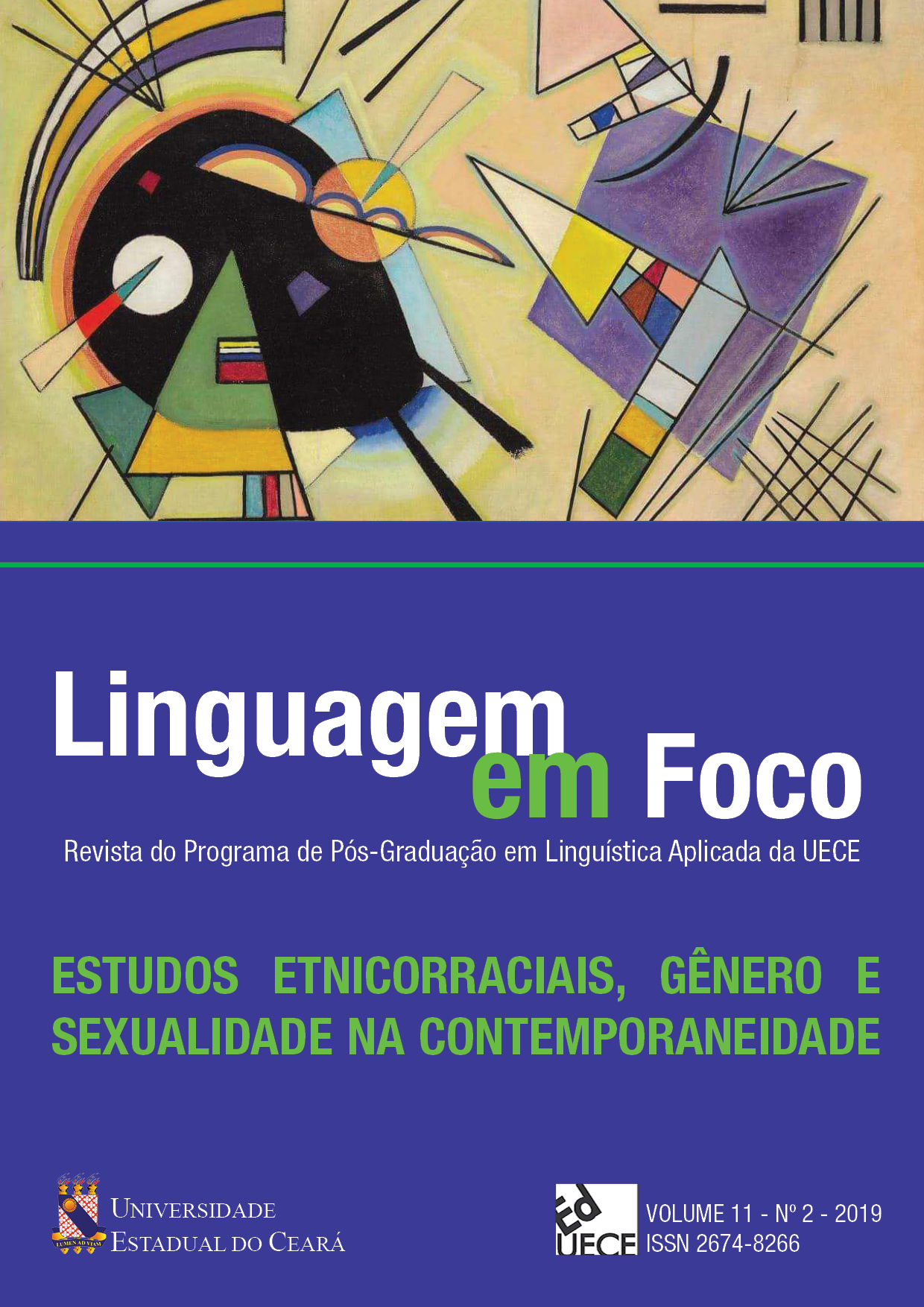Desconstruindo e Reconstruindo Linguagem, Raça e Relações de Poder em uma Sala de Aula Secundária nos Estados Unidos
DOI:
https://doi.org/10.46230/2674-8266-11-2911Palabras clave:
Língua afro-americana, atitudes sobre a variação da linguagem, ideologias linguísticas, linguagem e identidade racialResumen
Nas salas de aula, os professores envolvem explicitamente e implicitamente os alunos na exploração das ideologias linguísticas que influenciam suas atitudes sobre a variação da linguagem e as relações raciais. O estudo de caso relatado aqui usa análise do discurso etnogeograficamente detalhada para examinar como as conversas instrucionais em uma sala de aula de artes de língua secundária convidaram os alunos a refletir, desconstruir e reconstruir ideologias linguísticas isso influenciou a forma como eles viam o uso da linguagem e as relações raciais. Empregamos um quadro mircoetnográfico, analítico do discurso, informado por sociolinguística interacional, teoria racial crítica e raciolinguística para analisar a conversa instrucional. A análise tornou visível como a conversa instrucional orientou a desconstrução e a reconstrução da variação da linguagem pelos alunos através do posicionamento uns dos outros para questionar binários linguísticos, ligações entre ideologias linguísticas e raciais hierarquias e ideologias linguísticas que carecem de aterramento em suas próprias experiências linguísticas cotidianas. Os resultados também mostram que as próprias identidades sociais dos alunos foram implicadas nas ideologias linguísticas que detinham, desconstruídas e reconstruídas.
Descargas
Descargas
Publicado
Cómo citar
Número
Sección
Licencia
Derechos de autor 2020 Ayanna F. Brown, David Bloome

Esta obra está bajo una licencia internacional Creative Commons Atribución 4.0.
Os autores que publicam na Linguagem em Foco concordam com os seguintes termos:
- Os autores mantêm os direitos autorais e concedem à revista o direito de primeira publicação. Os artigos estão simultaneamente licenciados sob a Creative Commons Attribution License que permite a partilha do trabalho com reconhecimento da sua autoria e da publicação inicial nesta revista.
- Os conceitos emitidos em artigos assinados são de absoluta e exclusiva responsabilidade de seus autores. Para tanto, solicitamos uma Declaração de Direito Autoral, que deve ser submetido junto ao manuscrito como Documento Suplementar.
- Os autores têm autorização para disponibilizar a versão do texto publicada na Linguagem em Foco em repositórios institucionais ou outras plataformas de distribuição de trabalhos acadêmicos (ex. ResearchGate, Academia.edu).





























